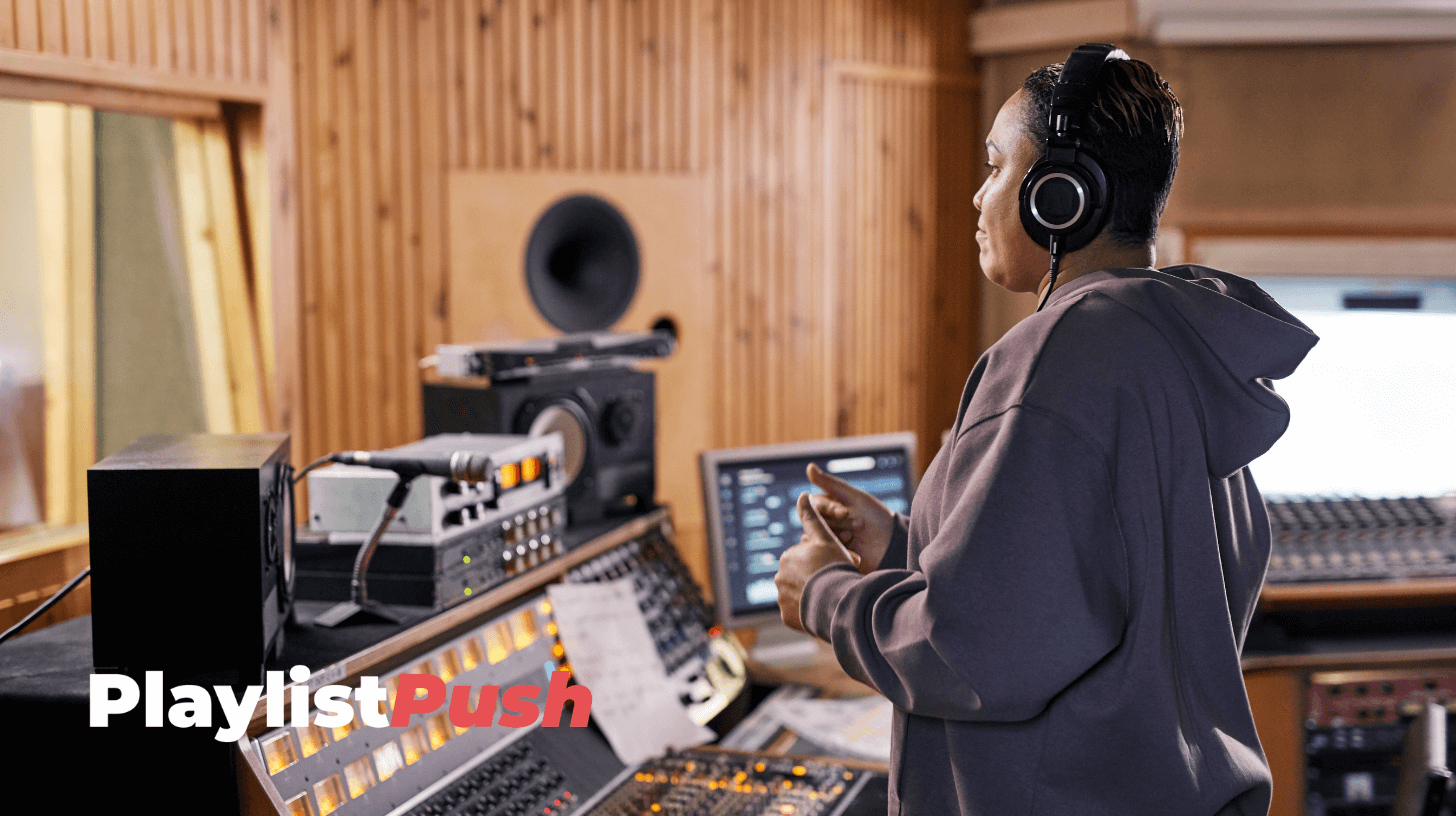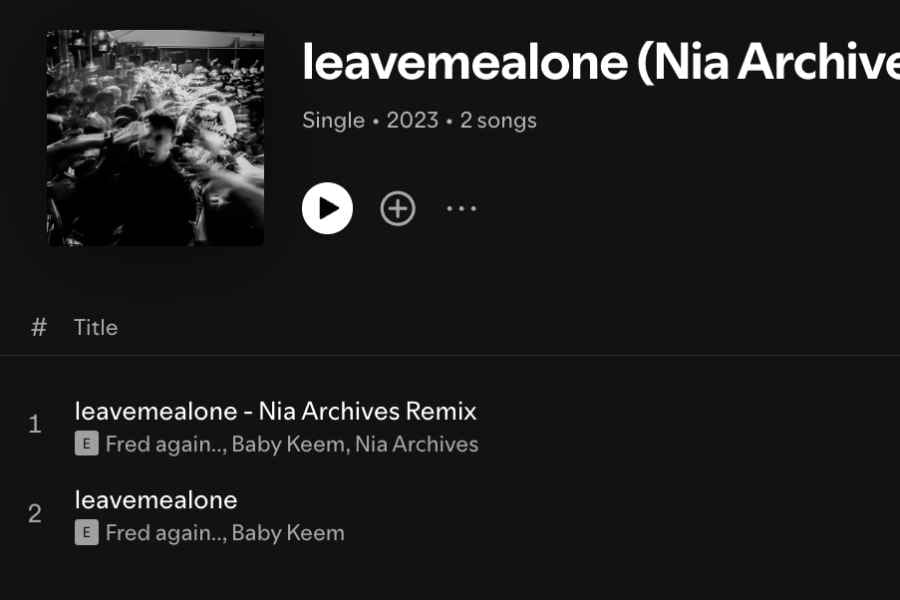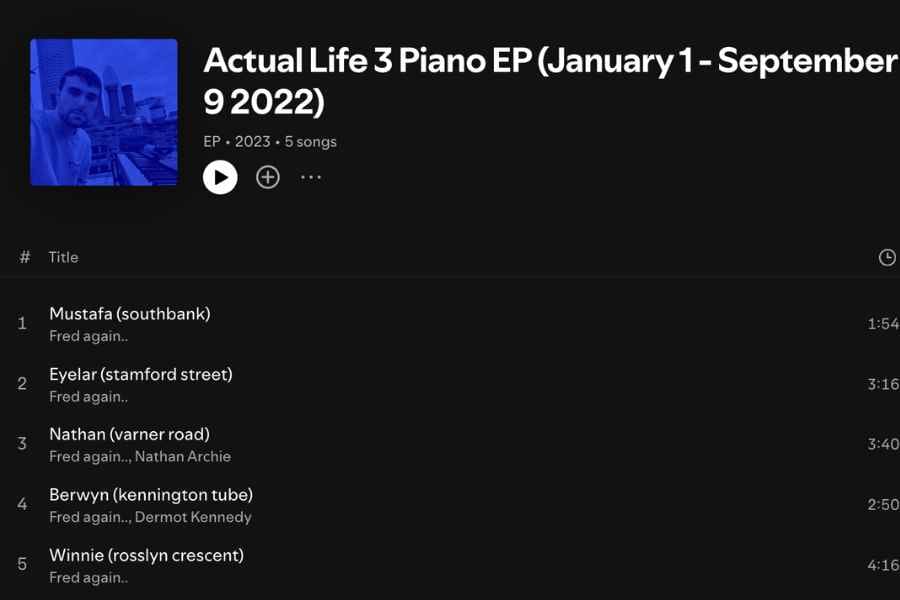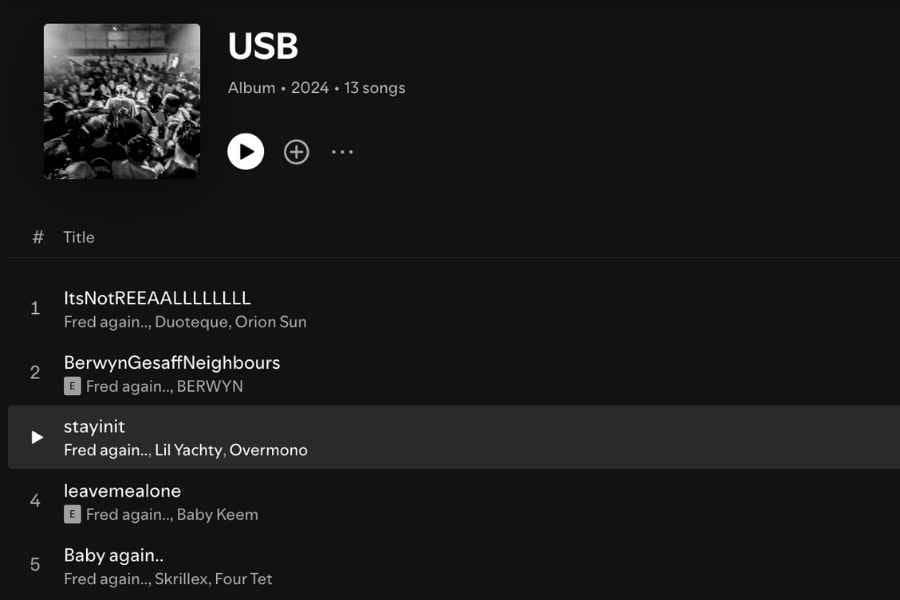
For artists and producers, releasing music is essential to reaching their audience and growing their careers. However, deciding how to release that music can sometimes be confusing, especially with terms like "Single," "EP," and "Album" being thrown around.
Understanding the differences between these types of releases can help you choose the right format for your music and your career stage. In this blog post, we'll break down the differences between a Single, an EP, and an Album and explore the benefits and considerations of each.
What is a Single?
A Single is a type of music release that typically features one main track, which can be accompanied by additional tracks such as B-sides or remixes. The primary purpose of a Single is to promote a specific song, which is often expected to be popular or commercially successful.
 Example of a Single
Example of a SingleCharacteristics of a Single:
Track Count: Usually 1-3 tracks. The main song is the focus, with any additional tracks serving as supplementary material.Duration: Typically, a Single lasts anywhere from 2 to 10 minutes.
Purpose: Used to generate buzz and attention for an artist, often serving as a precursor to a larger release like an EP vs Album.
Promotion: Singles are often supported by music videos, radio play, and digital marketing campaigns.
Benefits of Releasing a Single:
Cost-Effective: Cheaper to produce and promote compared to an EP or Album.Focused Marketing: Easier to market one song intensively.
Quick Release: Faster turnaround from production to release.
What is an EP?
An EP meaning Extended Play record, is a release that is longer than a Single but shorter than a full Album. It typically contains a small collection of songs that showcase an artist's style and range without the commitment of producing a full Album.
 Example of an EP
Example of an EPCharacteristics of an EP:
Track Count: Usually 4-6 tracks.Duration: Typically lasts between 15 to 30 minutes.
Purpose: Acts as a bridge between Singles and Albums, providing more content than a Single but requiring less time and financial investment than an Album.
Content: Often includes a mix of different songs that showcase an artist's versatility.
Benefits of Releasing an EP:
More Content: Provides listeners with a substantial amount of music, more than a Single.Artist Development: Helps artists build a stronger connection with their audience by showcasing a broader range of their work.
Strategic Release: Can be used to test new musical directions or themes before committing to a full Album.
What is an Album?
An Album is a music release that contains a larger collection of songs, offering a complete and immersive listening experience. Albums are considered a significant artistic statement, often reflecting a cohesive theme or concept.
 Example of an Album
Example of an AlbumCharacteristics of an Album:
Track Count: Usually 8-15 tracks, though this can vary.Duration: Typically lasts from 30 minutes to over an hour.
Purpose: Serves as a major milestone in an artist's career, often defining their musical identity and artistic vision.
Content: Features a mix of songs that are often interconnected thematically or stylistically.
Benefits of Releasing an Album:
Depth and Substance: Allows for deep artistic expression and the exploration of complex themes.Legacy and Impact: Often considered the pinnacle of an artist's work, contributing significantly to their legacy.
Revenue Opportunities: Can generate substantial income through sales, streaming, and touring.
Choosing the Right Format for Your Music
Deciding whether to release a Single, an EP, or an Album depends on several factors, including your career stage, budget, and artistic goals.
Early Career:
Single: Ideal for new artists looking to make an impact with a standout track. It's a great way to introduce yourself to the audience without overwhelming them.
EP: Useful for showcasing your versatility and building a substantial connection with listeners. It provides a broader introduction to your music.
Established Career:
Single: Can keep your audience engaged between larger projects. It's also effective for experimenting with new sounds.
EP: EPs serve as teasers for upcoming Albums or as a way to explore side projects or new styles without the pressure of a full Album.
Album: Ideal for making a significant artistic statement and deepening your connection with your audience. It also provides ample material for promotional tours and campaigns.
Budget Considerations:
Single: Most cost-effective and quickest to produce.
EP: Moderate investment with more content to offer than a Single.
Album: Requires the most significant financial and time investment but offers the most substantial artistic and commercial return.
FAQS
Is an EP technically an album?
An EP isn't technically considered an album. It's shorter than a full-length album but longer than a single. Typically, an EP has about 3-5 songs, while an album usually has 8 or more tracks.
What makes an EP not an album?
An EP isn't considered an album mainly because of its length and the number of tracks. An EP usually has 3-5 songs and runs for about 15-30 minutes, while an album typically features 8 or more tracks and lasts 30 minutes to over an hour.
EPs are often used to give listeners a taste of new music without the commitment of a full album, making them a great way for artists to release music more frequently.
Is it better to release singles or albums?
Depending on your goals, you can choose between singles or an album. Singles keep your audience engaged with frequent releases and are easier to promote.
Albums allow for a deeper artistic expression and can generate more revenue and media attention. New artists might build an audience with singles, while established artists can make a larger impact with albums.
Using both can effectively showcase your work and keep fans interested.
Is an EP better than an album?
An EP isn't necessarily better than an album; it just depends on your goals. EPs allow for more frequent releases and experimentation, giving listeners a taste of your music.
Albums offer a deeper artistic expression and can have a bigger impact. The best choice depends on what you want to achieve with your music.
EP vs LP
An EP (Extended Play) is shorter than an LP (Long Play, or album). EPs usually have 4-6 songs and last about 15-30 minutes, while LPs have 8 or more tracks and are longer.
Conclusion
Understanding the differences between a Single, an EP, and an Album is crucial for making strategic decisions about your music releases. Each format serves different purposes and can be used at various stages of your career to maximize your impact and reach.
Whether you want to make a quick impact with a Single, explore your sound with an EP, or make a lasting statement with an Album, choosing the right format can help you connect with your audience and grow your career effectively.
Looking to Promote Your Music?
Use our Spotify Playlist Submissions or TikTok Promotion services.












 Bengali (Bangladesh) ·
Bengali (Bangladesh) ·  English (United States) ·
English (United States) ·